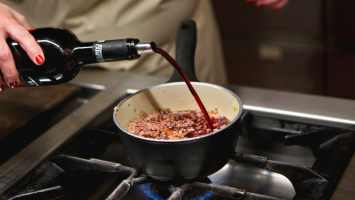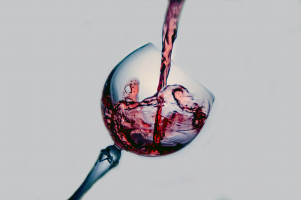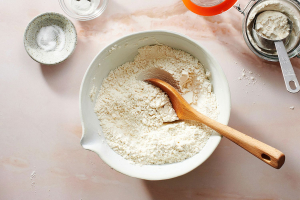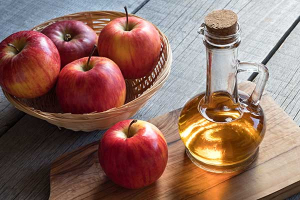Top 5 Best Red Wine Vinegar Substitutes
Red wine is fermented to produce red wine vinegar. It has a distinctive tangy, somewhat sweet flavor that goes well with a variety of foods. Even better, it ... read more...has antioxidants that are good for your health. It is frequently used in gazpachos, marinades, vinaigrettes, pickling recipes, and foods with a Mediterranean flair. There's no need to panic if a recipe you're following calls for red wine vinegar but you're out. Here are the best red wine vinegar substitutes.
-
A typical pantry item in many homes is balsamic vinegar. It has molasses, fig, and cherry overtones and is created from fermented grape juice. It's thicker, darker, and sweeter than red wine vinegar, so you might need to reduce the amount of sweetness in the meal you're preparing.
Simply swap it in at a 1:1 ratio for red wine vinegar in salad dressings. You could want to first dilute it with red wine or white vinegar in a ratio of 1:1 for various dishes, such as marinades or sauces for pizza or crostini. Fruit, roasted tomatoes, cubed avocado, and grilled sweet potatoes all taste great with balsamic vinegar.
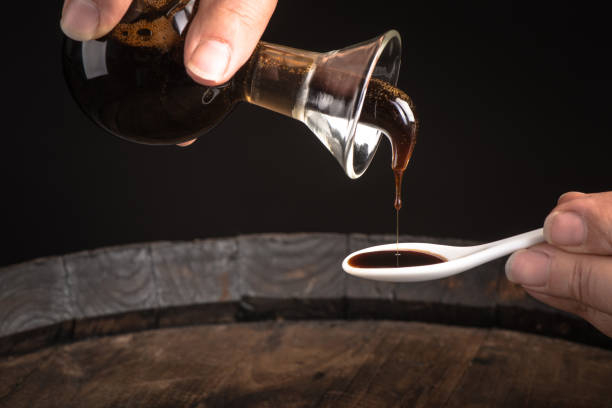
Balsamic vinegar 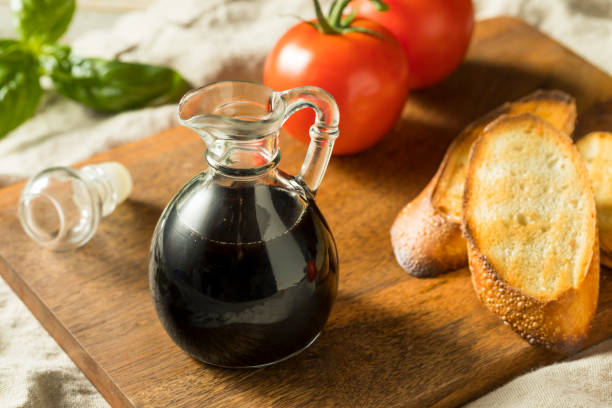
Balsamic vinegar -
Red wine vinegar can be imitated by combining white vinegar with red wine. A 1:3 ratio of white vinegar to red wine is a nice place to start. For instance, combine 3 tablespoons of white vinegar with 1 tablespoon of red wine. The ideal time to alter the mixture is after it has had a few hours to come together.
In a similar vein, you may combine red wine vinegar and white vinegar to get the full amount you require if you have some red wine vinegar but not quite enough for a recipe. Anywhere that asks for red wine vinegar, such as salad dressings, sautéed mushrooms, or caramelized onions, give this simple substitute a shot.

White vinegar mixed with red wine 
White vinegar mixed with red wine -
Tamarind paste is created from tart tamarind fruit, which is not a form of vinegar. It complements many Indian and Asian meals that call for red wine vinegar thanks to its flavor, which is comparable to that of red wine vinegar.
Although it functions best as a meat tenderizer, it doesn't always perform well in recipes. Start with a modest quantity, like a teaspoon or two, and build up from there as necessary because it has a powerful flavor. The availability of tamarind paste may be easier to find than that of red wine vinegar at specialty shops, Asian or Indian markets, or online.
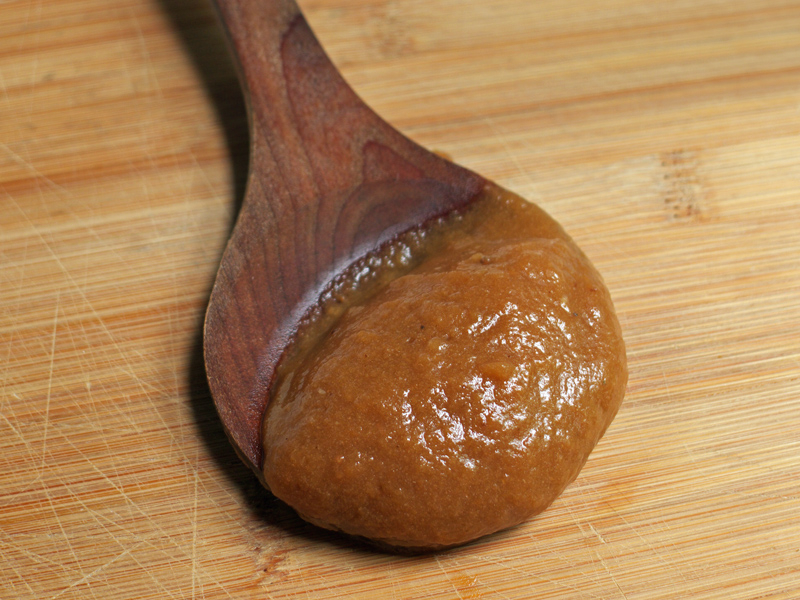
Tamarind paste 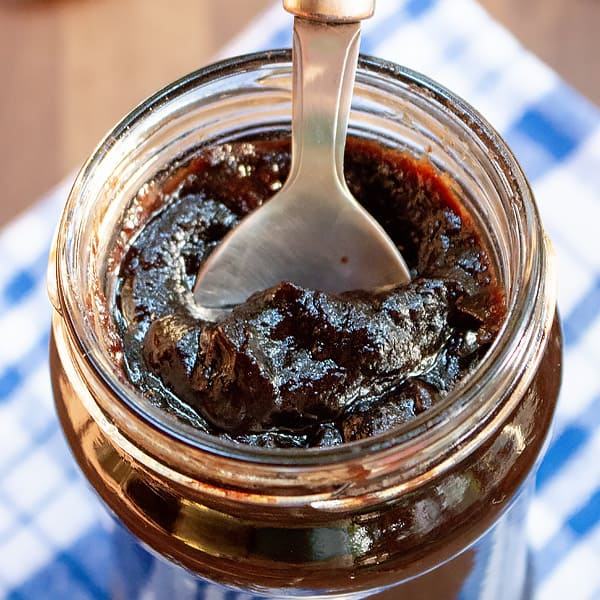
Tamarind paste -
Red wine vinegar and raspberry vinegar seem quite similar in color, however, raspberry vinegar is a little bit sweeter. You might wish to lessen the recipe's recommended level of sweetness if you use this as a replacement. In every other case, a 1:1 substitution can be made. Make marinades for meat and mushrooms as well as salad dressings with raspberry vinegar. Alternatively, you may make a raspberry cooler drink by combining it with ginger ale and ice.
Fermented apples are used to make apple cider vinegar. It's a bolder alternative with a fruitier flavor compared to red wine vinegar. As a result, if you're using apple cider vinegar, you might want to reduce the amount of vinegar in your recipe. For a comparable hue and flavor, combine it with a little amount of red wine. The ideal applications for apple cider vinegar are vinaigrettes and salad dressings. Additionally, it is effective for making pickled vegetables and marinades as well as meals with tomatoes.
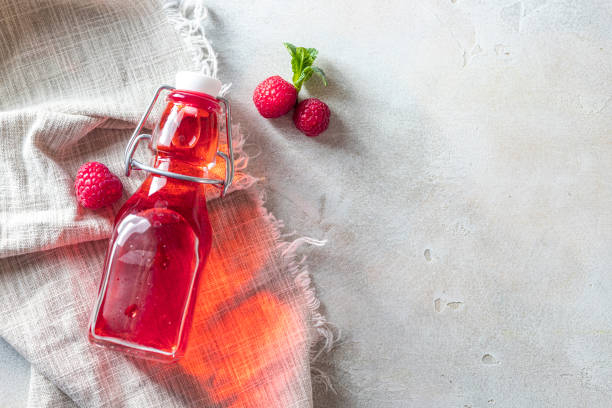
Raspberry vinegar 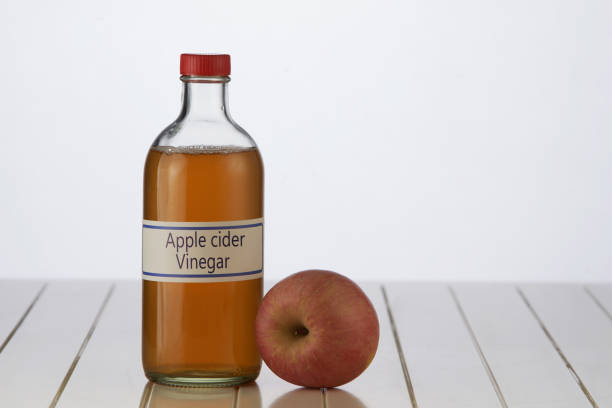
Apple cider vinegar -
White wine vinegar is a wonderful alternative to red wine vinegar since it has a similar level of acidity. Although you may replace it with 1:1, you should be aware that the flavor is a little less strong. For bringing, béarnaise sauce, cucumber salad vinaigrette, or braising poultry, white wine vinegar often works well. Remember that distilled white vinegar is not the same as white wine vinegar. White vinegar is produced using grain alcohol and has a greater acidity than white wine vinegar, which is produced by fermenting white wine.
Spanish cuisine frequently uses sherry vinegar, which is produced from sherry wine. Compared to red wine vinegar, it has a sweeter flavor, so make sure to cut back on any additional sweetness in the original dish you're making. In general, sherry vinegar may be substituted for red wine vinegar in a 1:1 ratio. You might need to add a bit extra, though, due to its milder flavor. Roasted vegetables, meats, soups, marinades, and vinaigrettes all benefit greatly from the addition of sherry vinegar.
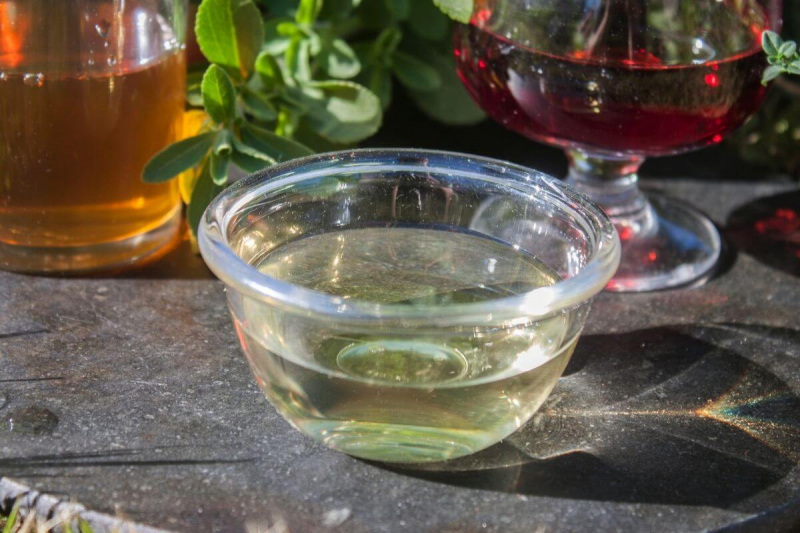
White wine vinegar 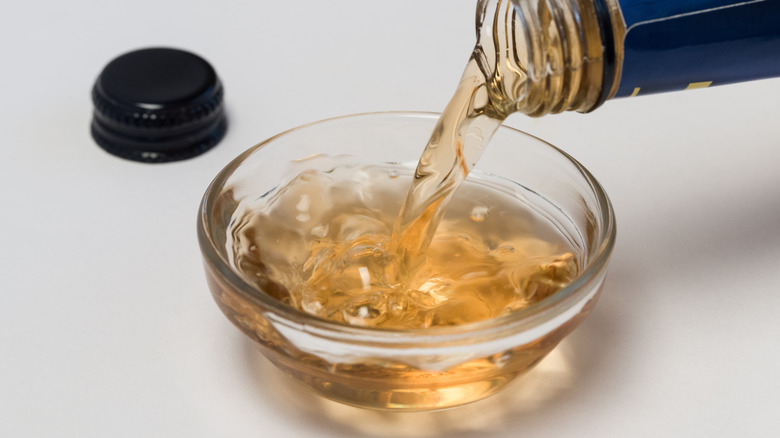
Sherry vinegar









